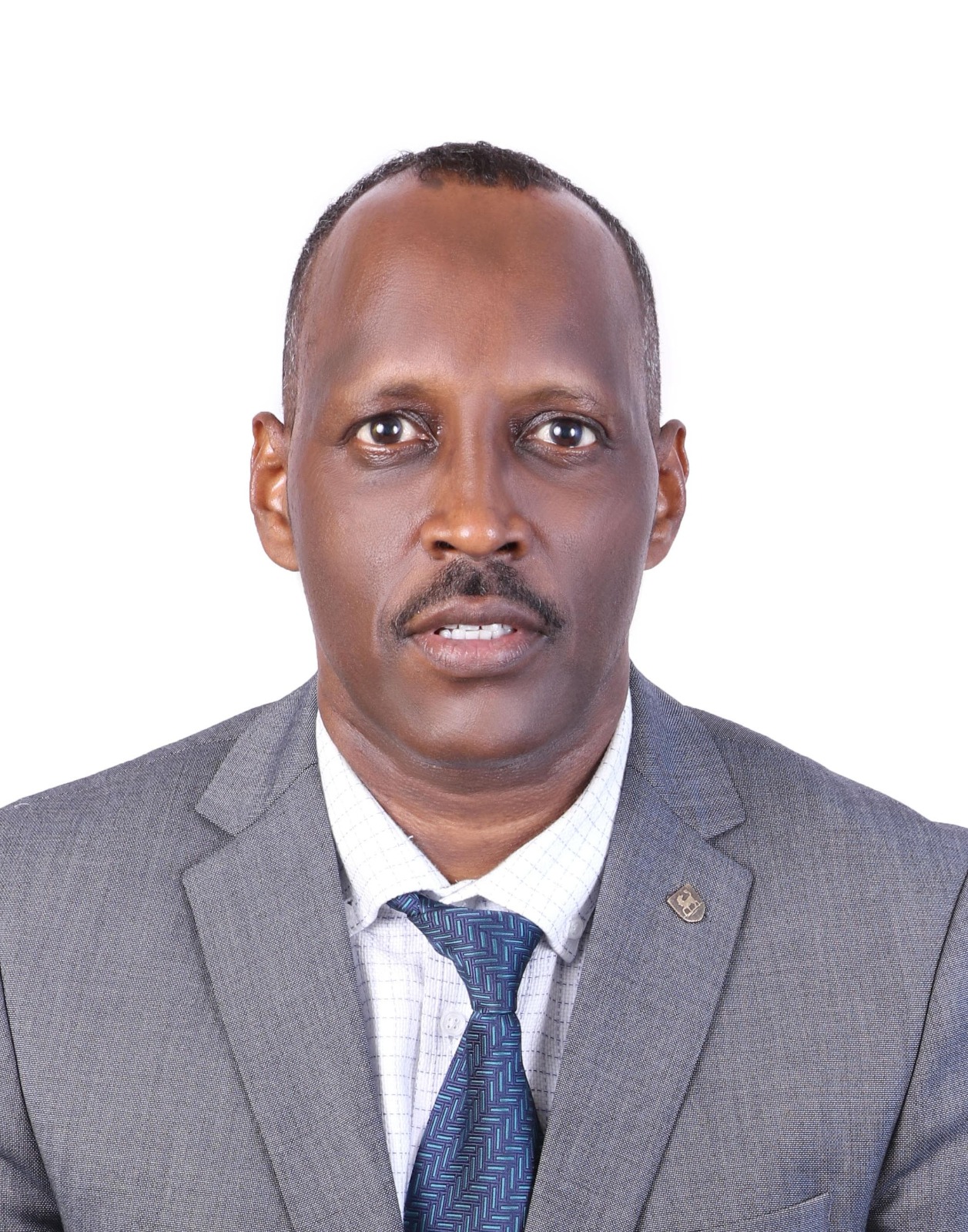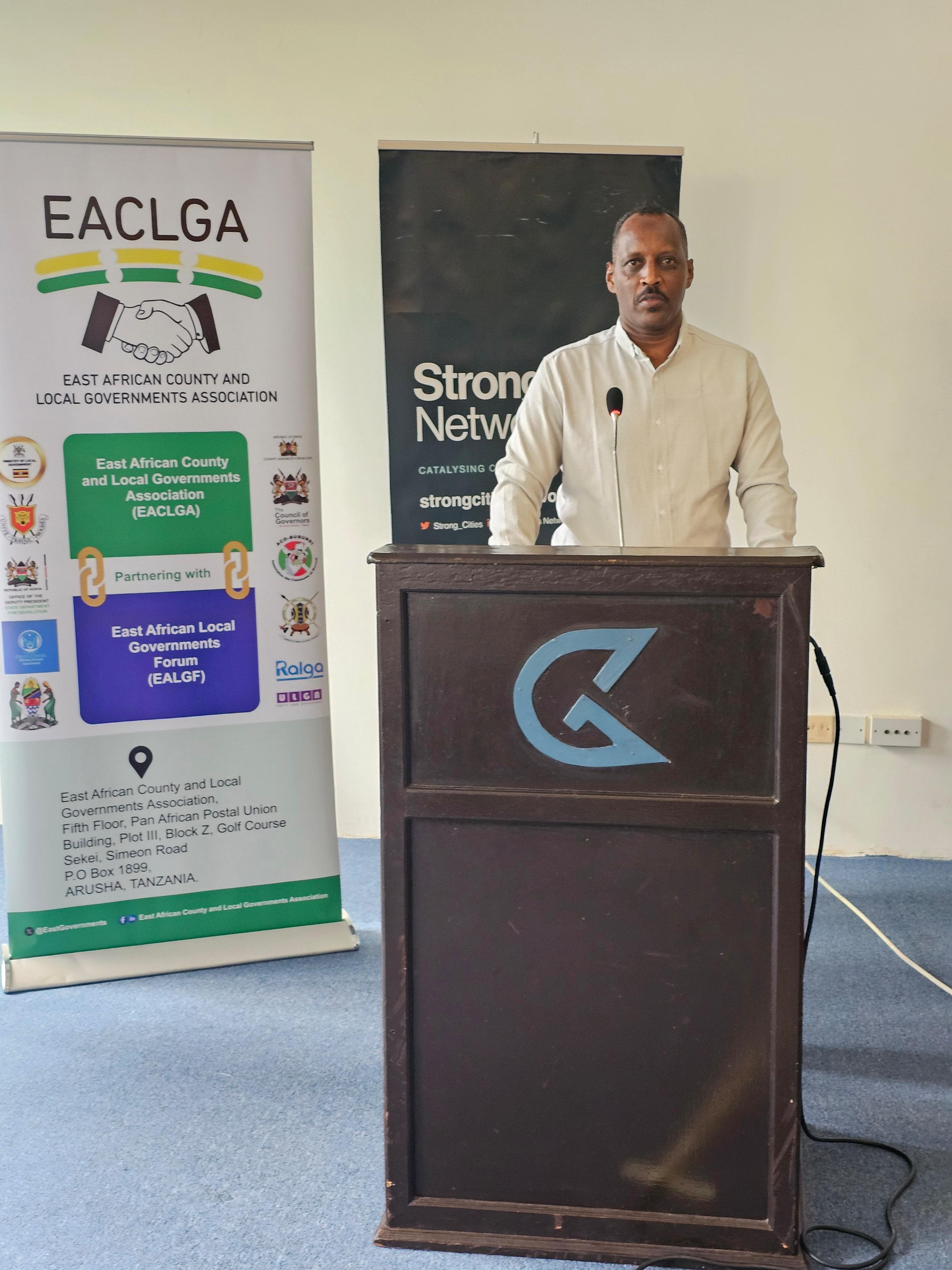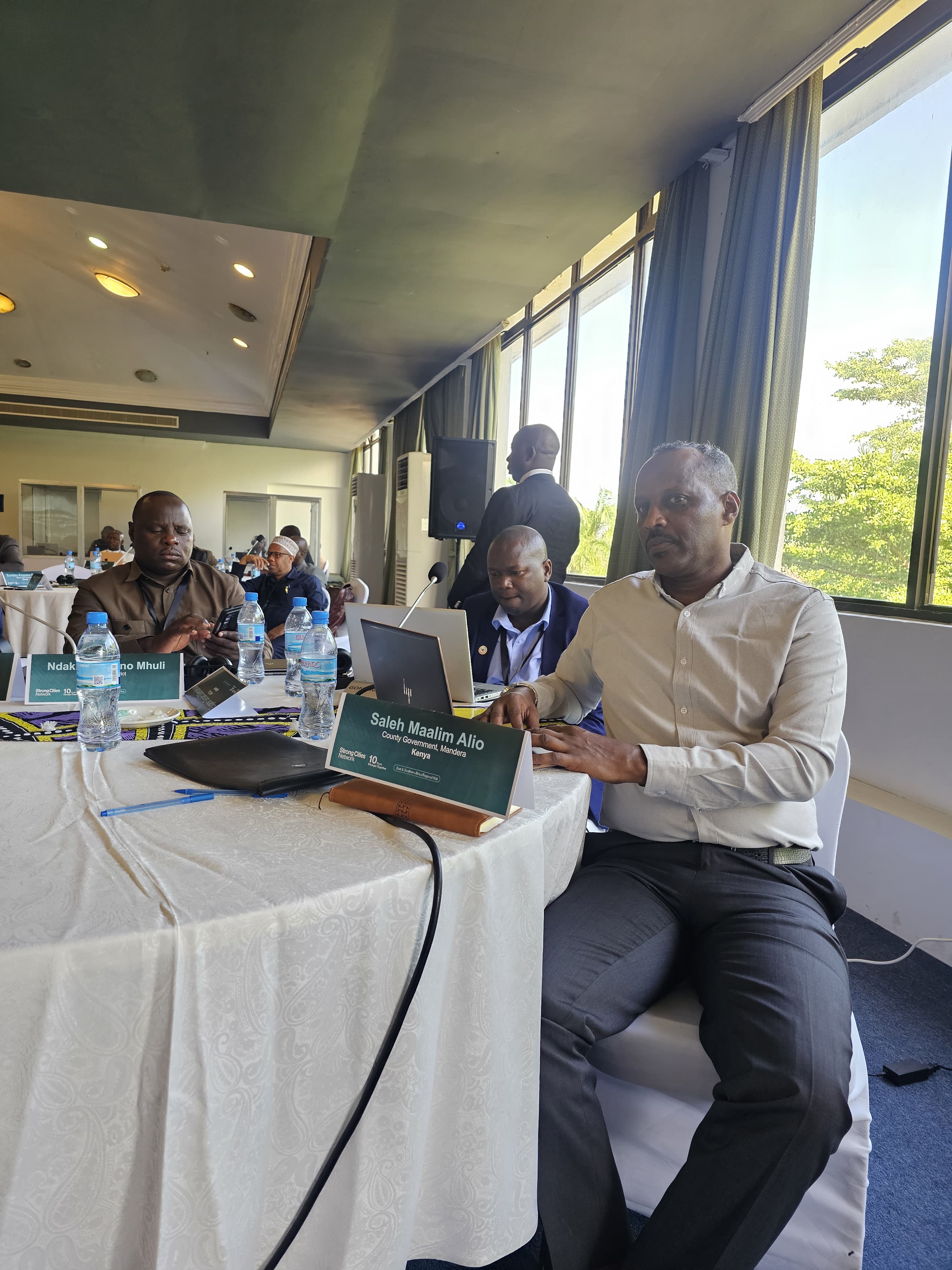 Hon. Salah Maalim Alio County Executive Committee Member, Lands, Housing and Urban Development, Mandera County Government; Volunteer programmes advisor Pastoralist Women Agency for Sustainable Development (PAWA)/HANDOUT
Hon. Salah Maalim Alio County Executive Committee Member, Lands, Housing and Urban Development, Mandera County Government; Volunteer programmes advisor Pastoralist Women Agency for Sustainable Development (PAWA)/HANDOUTIn the remote and often overlooked borderlands of Northern Kenya lies Mandera — a tri-border county at the intersection of Kenya, Somalia, and Ethiopia.
This strategic positioning, while rich in cultural and economic potential, has also rendered Mandera an epicentre for some of the region’s gravest threats: illegal migration, transboundary human trafficking, violent extremism and hate-fueled violence.
 Hon Salah Maalim Alio speaking during the workshop./COURTERSY
Hon Salah Maalim Alio speaking during the workshop./COURTERSY One of the most heart-wrenching and persistent challenges we face is radicalisation, illegal migration and human trafficking “Tahrib” — a Somali term for illegal migration, which has today evolved into a complex web of human trafficking and modern slavery.
Disguised as a gateway to Europe and a better life, illegal migration and human trafficking “Tahrib “is luring hundreds of youths from Mandera triangular border and beyond into perilous journeys through Sudan, the Sahara Desert, and into the lawlessness of Libya.
 Hon Salah Maalim Alio follows proceedings during the workshop./COURTERSY
Hon Salah Maalim Alio follows proceedings during the workshop./COURTERSY This tragedy is unfolding under our watch, claiming young lives and devastating families across Kenya, Somalia, Eritrea and Ethiopia.
The modus operandi is cruel and calculated. Youth are enticed by recruiters posing as travel agents and sold promises of opportunity abroad.
They are trafficked into slavery. Victims are often beaten, detained in deplorable conditions, raped, and forced to call their families while being tortured — videos of their agony used to extort thousands of dollars in ransom through informal Money transfer “hawala “networks.
What begins as a dream ends in trauma, abuse, and often, death.
Mandera triangular border sitting at the crossroads of three countries, bears the brunt of this crisis.
This week, from 11–12 June 2025, the Strong Cities Network (SCN) East and Southern Africa Hub, with support from the European Union and in collaboration with partners will convene a crucial regional workshop in Dar es Salaam, Tanzania.
The theme — “The Role of Border Municipalities in Addressing Hate, Extremism, Trafficking and Other Threats to Safety and Security” — could not be timelier.
The workshop recognises the frontline role that border municipalities like Mandera and Elwak play in confronting these transnational threats.
Border municipalities are not just gateways for trade — they are the first responders to spill-over violence, irregular migration, climate-induced displacement, radicalisation, and trafficking networks.
This platform will bring together counties and local governments from across nine countries, along with EU and UK representatives, IGAD, EAC, and national governments.
The aim is to showcase local governance models, align strategies between local and regional actors, and empower local leaders to influence national and regional security agendas.
Mandera’s case must be front and center. Our county is not only on the frontline — we are the battleground.
As the government, we have made efforts to improve surveillance and strengthen cross-border peacebuilding initiatives. But the magnitude of the radicalisation. Illegal migration and trafficking “Tahrib “crisis demands more robust, better coordinated, and community-rooted responses.
This is where strategic partnerships come in.
The County Government of Mandera, in collaboration with the Strong Cities Network East and Southern Africa Hub, the International Organization for Migration (IOM), and local civil society actors like Pastoralist Women Agency for Sustainable Development (PAWA), must deepen coordinated efforts to:
1. Enhance Community Awareness: Launch bold, multilingual, grassroots campaigns in villages, schools, mosques, and marketplaces to expose the lies of traffickers and show the dangers of illegal migration and human trafficking “Tahrib” Survivor testimonies should be amplified, and community influencers empowered to counter recruitment narratives.
2. Strengthen Cross-Border Intelligence Sharing: Through partnerships brokered at forums like SCN’s regional workshop, we need formal frameworks for joint intelligence between Kenya, Somalia, Ethiopia, Sudan, and Libya — targeting traffickers, smugglers, and their financiers.
3. Expand Economic Alternatives for Youth: Youth don’t migrate because they want to die — they leave because they have no viable alternatives. We in County Government of Mandera-Kenya invested in Free secondary education dubbed “Elimu Kwa Wote”, vocational training, business incubation, digital innovation hubs, and modern pastoralism programmes to create homegrown hope and irrigation for food security and improved livestock production.
4. Support Survivor Rehabilitation: Reintegration must be a priority. Young people who return from illegal migration” Tahrib “often face trauma, stigma, and isolation. Psychosocial support, economic reintegration, and community acceptance are essential for healing and rebuilding.
5. Regulate Informal Financial Flows: Hawala “systems (Money transfer services) — while culturally rooted and valuable — must be regulated to prevent their misuse for laundering money from ransom and trafficking.
6. Assets Recovery of Traffickers- Traffickers and people involved in human trafficking and illicit trade must be prosecuted and assets that are illegally acquired be ceased and forfeited to the state.
The SCN East and Southern Hub workshop is more than a meeting — it is a call to action.
It recognises that solutions must come not only from capitals but from counties, local Governments and municipalities, where the real battles are being fought.
Mandera County Governor HE Mohamed Adan Khalif is ready to lead this conversation.
We are not passive victims of geography — we are proactive partners in regional peacebuilding, cross-border collaboration for trade and Development, resilience building,countering radicalisation and violent extremism.
Illegal immigration and human trafficking “Tahrib” is not just a migration issue. It is a humanitarian crisis.
It is organised crime. It is a betrayal of youth. And unless addressed with the seriousness it demands, it will continue to rob East Africa of its most asset — its young people.
Let this Regional workshop marks a turning point. Let us align our efforts — local, national, and regional — and give our youth something far greater than false hope abroad: a real future at home.
The author is the County Executive Committee Member, Lands, Housing and Urban Development, Mandera County Government; Volunteer programmes advisor Pastoralist Women Agency for Sustainable Development (PAWA).
Email: [email protected]
Opinion expressed are his own and do not represent that of the County Government of Mandera and PAWA.













